From Journalism to African American History in TexasI am proud to announce I was awarded a scholarship from the Dulaney Family Fund for my fall 2021 graduate studies in history at the University of Texas at Arlington. I received the scholarship in August 2021 from UTA Professor Emeritus William Dulaney, Ph.D., who is also Deputy Director/COO of the African American Museum of Dallas. Download my map quiz here.Currently, I am enrolled part-time in the master’s in history program at UTA. My long-term goal is to earn a doctorate degree specializing in African American history in Texas. I decided to follow the advice of my former Abilene Christian University Communication Law Professor Dr. Charles Marler, who encouraged me to pursue becoming an African American historian. He said there aren't enough Black historians and that I had the wherewithal to become one. Wow! He shared that advice after I told him about two of my Texas Highways magazine stories. I listened and am almost finished with my first semester. Returning to graduate school was definitely the right step. The courses are intellectually satisfying and I am well-suited to part-time graduate work. Watch video of Dr. Marler discussing libel.Narrative: The heart of history and journalismJust like in journalism, the narrative or story is at the heart of a history thesis or argument. And, as importantly, I use my award-winning journalism expertise in fascinating new ways in my history courses. For example, I recently posted two summaries of two history book reviews on a discussion board. I wrote several historiography papers that analyzed various themes. In each instance, my journalism background served me well in synthesizing complex information. One of the reasons Dr. Marler advised me to consider graduate work in history is because he had studied "journalism and Black history at the University of Missouri-Columbia," which he wrote about in my recommendation letter. I was so impressed that he had studied Black history in graduate school. He also shared that well-known axiom, "Journalism is the first rough draft of history." When I graduated with my M.A. in Journalism Administration degree from the University of Memphis, I sensed I would return to a university to learn more about the art and craft of the narrative. This time, I am aiming for a doctorate in history because of the abundant overlooked, underreported, and forgotten African American history in Texas content yet to be discovered, researched, and published. I look forward to one day researching, writing and teaching that history on all platforms, in and outside of academia. Meanwhile, I keep helping organizations and clients tell important stories while enjoying a new take on a familiar ride. Learn More:
Read my other UTA graduate school recommendations:
0 Comments
Dallas Morning News' Publisher and CEO 'Troubled' by Alleged U.S. Spying, Newspapers' Future11/1/2013
Update: "Entrepreneurial Journalism: Making Yourself the Brand" at Abilene Christian Univ. I joined some other Gutenberg award winners and Abilene Christian University alums at the "Entrepreneurial Journalism: Making Yourself the Brand" panel discussion Oct. 19, 2012 in Abilene, Texas. The event was part of ACU's 20th anniversary Gutenberg Awards celebration. In an earlier post, I referenced this event. This year's Gutenberg Award honorees are: Tracey Ferguson, Victoria Ahlén and Lovey Chin. Students received insights from the following presenters: 9 a.m: "Entrepreneurial Journalism: Making Yourself the Brand" Moderator- Kenneth Pybus, J.D. Panel members- Regina L. Burns,Grant Rampy, Wendell Edwards and Tracey Ferguson 10 a.m: "Internships: Launching Your Career" Moderator- Doug Mendenhall Panel members- Victoria Ahlén, Brent Magers, Marcia Prior-Miller, Ron Hadfield, Lovey Chin and Byron Harrell Here is the handout (.pdf), Four Stages of Your Career Diagram, that I shared during my presentation. The Careers/Job Hunt edition (March 2012) of Public Relations Tactics includes an article I wrote. The path of perseverance: Carving out a new career explores the journeys of three former journalists who transitioned successfully to public relations. 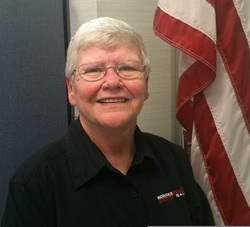 Ginger Anderson is a career development facilitator with RESCARE, Inc. Ginger Anderson is a career development facilitator with RESCARE, Inc. Ginger Anderson is a career development facilitator with RESCARE, Inc. and works at the Richardson Workforce Center in Richardson, Texas. Q: What are the first steps a career changer should take when beginning a job search? A: Before you start a job search, know what your minimum personal budget is and what salary range will meet that. Don’t expect to make what you did at your last job. Ask yourself ‘what is the absolute minimum I can live on'? Anything above that is gravy. Q: How can the career changer obtain experience in a new industry? A: Do volunteer work to hone the skills you need. We have to show the employer that we are trying to increase our skills... Then during the interview, tell the hiring manager that you are willing to learn from the bottom up—it’s the best way to learn about a new industry. Assure the prospective employer that you are there to help the company grow and obtain it goals. Anderson is reachable at [email protected]. 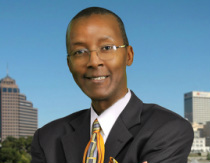 Wiley Henry has transitioned from journalism to PR. Wiley Henry has transitioned from journalism to PR. Wiley Henry, a portrait artist, photographer and former newspaper editor, went through a period of unemployment until he landed a senior account services specialist/writer job. Q: Was your faith tested [during your unemployment]? A: Oh yes, definitely tested. I stayed on bended knees hoping and praying that the Lord would open a door for me. And He did. And it was definitely a faith-tester ... . Every time I thought I was getting close to landing a job, it failed. It didn’t come through. And also, just when unemployment [benefits] were about to run out, that’s when I got the call from Deidre [Malone, who hired him to work for her firm, Memphis-based The Carter Malone Group LLC]. I had about a month left [of unemployment benefits]. That’s God... . We are taught in church that God is an on-time God [and] that He was will be there when you least expect Him to be. I’m a living witness that He will be right there. Henry is reachable at [email protected]. 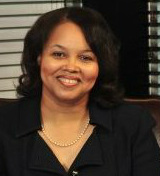 Before she founded her PR firm in Memphis, Tenn., Deidre Malone was a broadcast journalist. Before she founded her PR firm in Memphis, Tenn., Deidre Malone was a broadcast journalist. Deidre Malone runs her own PR firm, The Carter Malone Group LLC, based in Memphis, Tennessee. She hired Wiley Henry to help her firm's clients. Q: What advice do you have for journalists who may be considering PR? A: Seek a mentor. When you are a journalist sometimes you have an affinity to not want to deal with public relations professionals. This is an awesome career to have … . A great deal of what we do is strategic communications. I recommend they seek out small PR firms that may need assistance like Wiley ... . You can learn to pitch and put together a communications strategy. That’s something you can learn. Her firm is reachable at http://www.thecartermalonegroup.com/. 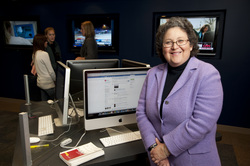 Yolette Garcia successfully transitioned to PR from running the newsroom at KERA in Dallas. Yolette Garcia successfully transitioned to PR from running the newsroom at KERA in Dallas. Yolette Garcia left her news management job at KERA in Dallas because she wanted a new career path. She joined SMU's Annette Caldwell Simmons School of Education and Human Development as assistant dean of external affairs and outreach. Here is an audio excerpt from my January 2012 interview with her: 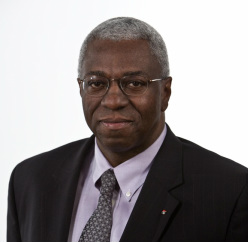 Anthony HIcks, APR, is PR director at a Memphis nonprofit. Anthony HIcks, APR, is PR director at a Memphis nonprofit. Anthony Hicks, APR, is director of public relations and development at Shelby Residential and Vocational Services in Memphis. Hicks, formerly a staff reporter at the Arkansas Gazette, has advice for journalists or anyone else considering a job in PR. Q: Do you have any regrets about PR? A: The biggest challenge is managing expectations of senior executives. Unfortunately, public relations is a difficult field to understand if you are not experienced in it. Consequently, many organizational leaders do not have experience in public relations. That means the public relations person is expected to work miracles. Have a thick skin. Be strategic. Always be strategic. Q: Why get the APR (Accreditation in PR credential)? A: I got it because I wanted to be recognized as the best in my field. I wanted to know for myself that I had the best skills that my industry required and I wanted some authentication. You have to be in PR for a while to get it. I knew it would be a valuable commodity to have. PR is highly competitive so anything you can do to differentiate yourself, the better off you are. Q: Any other advice? A: Before and after joining a company, learn its business thoroughly. Once hired you will consistently use your innate news gathering skills to identify programs and initiatives in the company that will make good news stories -- adapted to the press release format. A reporter’s instinct will serve you well in public relations and media relations. Understand that once you make the transition, reporters are not publicists for the company you work for. For more information about Shelby Residential and Vocational Services, go to http://www.srvs.org/ During my Feb. 19, 2011 visit to the Newseum in Washington, DC, I met Belva Davis, the first black female TV journalist in the western United States. Ms. Davis was promoting her memoir “Never in My Wildest Dreams: A Black Woman’s Life in Journalism,” which was written with veteran journalist and editor Vicki Haddock. The Newseum is a breath-taking interactive museum of news. I happened to fortuitously hear the announcement that Ms. Davis would be taping a television interview in the Knight Studios at the Newseum that afternoon. “Never in My wildest Dreams” chronicles the rugged path she endured en route to achieving her journalistic milestone. The book describes some of the hardships and indignities she endured, such as when she and then-KDIA news director Louis Freeman, also an African-American, were driven from the 1964 Republican national convention by a group of attendees hurling racial epithets. Ms. Davis is married to veteran photojournalist, William Moore, whom I also had the pleasure of meeting during the book signing at the Newseum, a double treat. While reading her book, I was struck by the fact that I never heard of her in any of my collegiate journalism studies. If I hadn’t been in Washington, DC that February day, I would have missed meeting two American journalism pioneers. I just hope our textbooks are being updated to acknowledge their contributions to journalism and American history. Thanks for all your hard work and fortitude! Check out these links: Belva Davis's website: http://www.belvadavis.com/ The Newseum, Washington, DC: http://www.newseum.org/index.html National Association of Black Journalists's Hall of Fame (2008), http://www.nabj.org/?page=HallOfFame 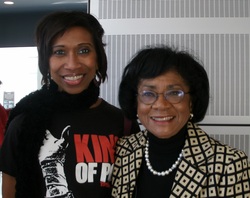 I am with Ms. Belva Davis, a pioneer who withstood numerous indignities on the road to becoming the first African-American woman television journalist in the western United States. Photographed on Feb. 19, 2011 at the Newseum in Washington, DC. I am with Ms. Belva Davis, a pioneer who withstood numerous indignities on the road to becoming the first African-American woman television journalist in the western United States. Photographed on Feb. 19, 2011 at the Newseum in Washington, DC. Hello New Year and greetings to the online community. I'm excited to join the ranks of bloggers everywhere. This blog will cover various topics such as digital media, video, audio, writing, journalism along with ex-journalists and a host of other interesting tidbits. I'm an avid reader too sometime I will share my thoughts about books I have read or am reading. Now, on to the main event. Almost a year ago, I recorded a resume videotape and posted it on Youtube. It's time to bring it home to my blog and talk about the process of planning, scripting and posting a resume video. First, I reached out to a good friend who is a videographer. He had access to a great studio. He generously donated everything so I had no out-of-pocket expenses. Thank you!! My goals were to transfer my broadcast background to Youtube and to see what happened. That was it. I thought through the short script, which I initially wrote on index cards, then I memorized it by practicing aloud. I had a lot of fun recording this -- we did it in two takes as I recall. |
About the Author:Regina L. Burns, M.A., Project+, is an award-winning multimedia editor and journalist, specializing in Black history and African American stories at Harvest Reapers Communications. Her work has been published in Texas Highways magazine, WFAA-TV, The Dallas Morning News, the Fort Worth Star-Telegram as well as The Commercial Appeal, the Tri-State Defender and The Flyer, among others. Categories
All
Archives
January 2024
|

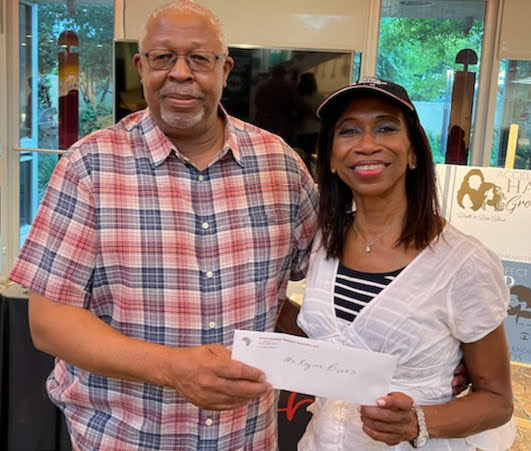
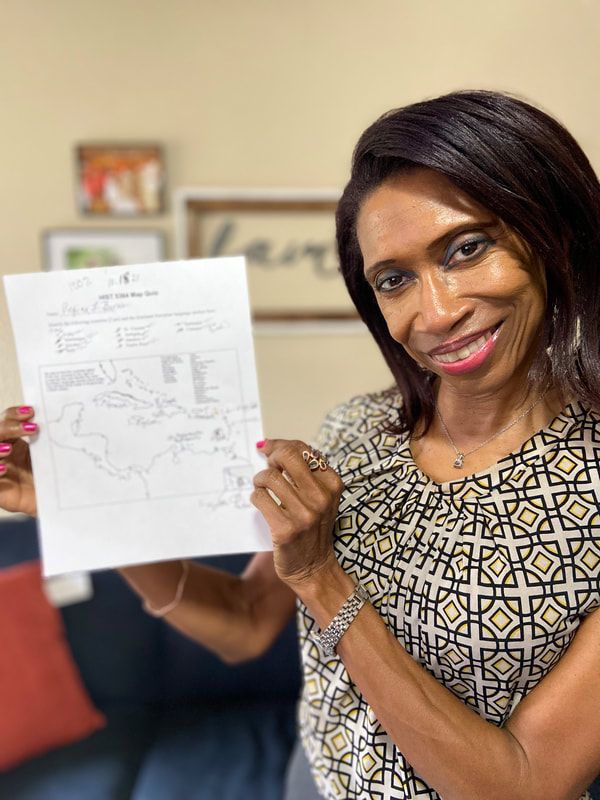
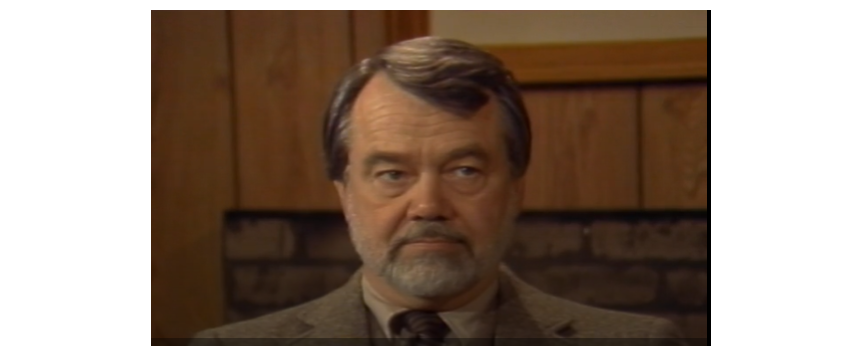
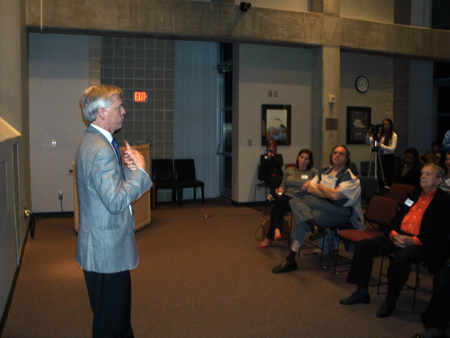

 RSS Feed
RSS Feed